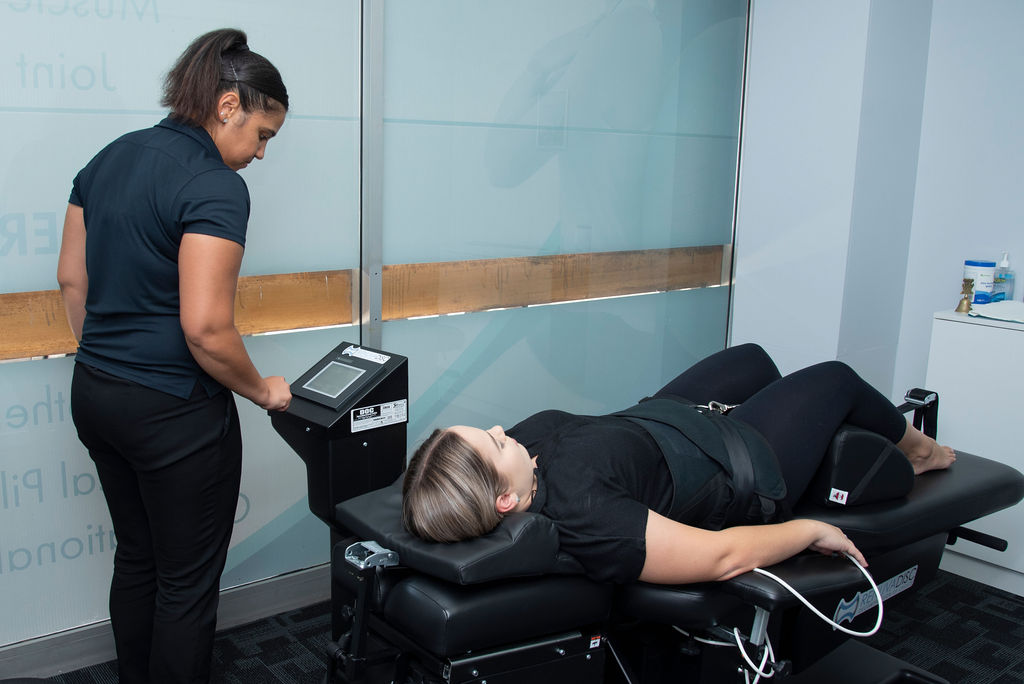

What is Shoulder pain?
Shoulder pain is a common condition characterized by discomfort, pain, or aching in the shoulder joint, surrounding muscles, tendons, ligaments, or bones. The shoulder is a complex joint that is made up of three bones: the scapula, clavicle, and the humerus. The joint is held together by muscles, tendons, and ligaments, which provide stability and allow for a wide range of motion.
There are many different causes of shoulder pain, and the condition can be acute (short-term) or chronic (long-term). Some common causes of shoulder pain include:
- Rotator cuff injuries: The rotator cuff is a group of muscles and tendons that attach the upper arm bone to the shoulder blade. When these muscles and tendons become damaged or torn, it can cause pain and limited range of motion.
- Tendinitis: Inflammation of the tendons, such as biceps or rotator cuff tendons.
- Bursitis: Inflammation of the fluid-filled sac (bursa) that cushions the joint.
- Impingement: When the tendons, bursa, or bones in the shoulder become compressed, it can cause pain and limited range of motion.
- Osteoarthritis: A degenerative joint disease that can cause pain and stiffness in the shoulder.
- Fractures: Shoulder bone fractures can also cause severe pain, swelling and difficulty moving
- Frozen shoulder (Adhesive capsulitis): A condition that causes stiffness and limited range of motion in the shoulder, which can be caused by injury, surgery or a disease such as diabetes.
It’s important to see a medical professional, such as a physiotherapist or doctor, for an accurate diagnosis and appropriate treatment for your shoulder pain. Different conditions have different treatment approach, and a correct diagnosis is crucial to choose the right treatment plan.
Common symptoms of Shoulder Pain
The symptoms of shoulder pain can vary depending on the underlying cause of the condition. However, some common symptoms include:
- Pain in the shoulder joint, surrounding muscles, tendons, ligaments, or bones
- Stiffness or limited range of motion
- Weakness or difficulty lifting objects
- Tenderness or discomfort when the shoulder is touched or moved
- A popping or grinding noise when moving the shoulder
- Numbness or tingling sensation in the arm or hand
- Swelling or redness in the affected area
- Bruising or discoloration of the skin
It’s worth noting that not all people with shoulder pain will experience all of these symptoms, and the intensity of the symptoms can vary. It’s important to see a medical professional, such as a physiotherapist or doctor, for an accurate diagnosis and appropriate treatment.
Causes of Shoulder Pain
Shoulder pain can have many different causes, and the condition can be acute (short-term) or chronic (long-term). Some common causes of shoulder pain include:
- Injury or overuse: Repetitive motions such as throwing a ball or lifting weights, or a sudden injury can cause strain, tears or damage to the muscles, tendons, ligaments or bones of the shoulder, leading to pain.
- Tendinitis or Bursitis: Inflammation of the tendons or the fluid-filled sacs that cushion the joint can cause pain and limited range of motion.
- Impingement: When the tendons, bursa, or bones in the shoulder become compressed, it can cause pain and limited range of motion.
- Arthritis: Osteoarthritis and rheumatoid arthritis can both cause pain and stiffness in the shoulder.
- Frozen Shoulder (Adhesive Capsulitis): A condition that causes stiffness and limited range of motion in the shoulder, which can be caused by injury, surgery or a disease such as diabetes.
- Fractures: Shoulder bone fractures can also cause severe pain, swelling and difficulty moving
- Other medical conditions: Shoulder pain can also be caused by other underlying medical conditions such as heart disease, lung cancer, or rotator cuff tear.
- Poor posture: prolonged sitting or standing with rounded shoulders, or hunching over a computer for long periods of time can put extra stress on the shoulders and cause pain over time.
It’s important to see a medical professional, such as a physiotherapist or doctor, for an accurate diagnosis and appropriate treatment for your shoulder pain. Different conditions have different causes, and a correct diagnosis is crucial to choose the right treatment plan.
How is Shoulder Pain assessed by a Physiotherapist?
A physiotherapist will perform a thorough assessment to diagnose and treat your shoulder pain. During the assessment, the physiotherapist will gather information about your medical history, symptoms, and any previous injuries you may have had. They will also ask you about your level of physical activity, including the type of activity, intensity, duration, and frequency, as well as any other relevant factors that may be causing or aggravating your pain.
The physiotherapist will then perform a physical examination, which will include a number of tests to evaluate the range of motion, strength, and flexibility of your shoulder, as well as any other relevant parts of your body. The physiotherapist will also assess the quality of your posture and movement patterns, to identify any imbalances or compensations that may be contributing to your pain.
The physiotherapist may also perform special tests specific for shoulder pain, such as the Neer Impingement test, the Hawkins-Kennedy Impingement test, the Full Can test, etc. These tests help the therapist to identify the specific structure that is causing the pain or limitation.
The physiotherapist will then use the information gathered during the assessment to make an accurate diagnosis of your condition and to develop a treatment plan tailored to your specific needs. The treatment plan may include a combination of techniques such as manual therapy, exercise therapy, taping, ultrasound, and electrotherapy.
It’s important to understand that physiotherapy treatment should be specific to the individual patient. Your physiotherapist will adjust the treatment as they see your progress, to ensure that you are receiving the most appropriate care for your condition.
Treatment for Shoulder Pain
Treatment for shoulder pain typically includes a combination of techniques aimed at reducing pain and inflammation, improving muscle strength and flexibility, and addressing the underlying cause of the injury. Here are some common treatment options:
- Rest and ice: The initial treatment for shoulder pain is typically rest and the application of ice to the affected area. This can help to reduce pain and inflammation. It’s important to avoid activities that aggravate the symptoms until the pain subsides.
- Physical therapy: A physiotherapist can develop an exercise program to help you regain muscle strength and flexibility. This may include exercises to target the muscles and tendons of the shoulder and core, as well as stretching exercises. Your physiotherapist will teach you how to perform the exercises correctly, and monitor your progress over time to make adjustments as needed.
- Manual therapy: The physiotherapist may use manual techniques, such as mobilization, soft tissue massage, or dry needling to help reduce pain and inflammation, and improve muscle strength and flexibility.
- Medications: In some cases, the physiotherapist may suggest the use of nonsteroidal anti-inflammatory drugs (NSAIDs) to help reduce pain and inflammation.
- Taping: Your physiotherapist may use tape to support the muscles and tendons and help to reduce pain and inflammation.
- Surgery: In some cases, the physiotherapist may refer to the orthopedic surgeon when the pain is caused by a structural problem that requires surgery.
- Gradual return to activity: Gradual return to activity is crucial in preventing reoccurrence of the shoulder pain and ensuring full recovery, your physiotherapist will guide you in how to progress your activity level, and provide you with the appropriate level of exercises that you need.
It’s important to note that the treatment plan will be tailored to your specific needs, and the physiotherapist will adjust it as they see your progress. It is also important to address the underlying cause of the injury to prevent recurrence, so that it’s not just treating the symptoms but fixing the root of the problem.
Dangers if left untreated
If left untreated, shoulder pain can lead to a number of complications, such as:
- Chronic pain: Shoulder pain can cause chronic pain in the shoulder joint and surrounding area, which can make it difficult to perform everyday activities and can negatively impact a person’s quality of life.
- Reduced physical activity: The pain and discomfort caused by shoulder pain can prevent a person from participating in physical activity, which can lead to muscle loss, weakness, and decreased cardiovascular fitness.
- Decreased range of motion: Shoulder pain can lead to decreased range of motion, which can make it difficult to perform daily activities such as reaching, lifting, and combing hair.
- Chronic injury: If not treated, shoulder pain can become a chronic problem, recurring every time a person increases their level of physical activity. This can lead to a cycle of pain, rest, and reduced activity, which can have a significant impact on a person’s quality of life.
- Chronic disability: When shoulder pain is not treated and progressive, it can lead to chronic disability and affect a person’s work and personal life.
- Surgery may be required: In some cases, if the pain is caused by structural issues, surgery may be required. This may be to repair or reconstruct the affected area which may require long rehabilitation process.
It’s important to seek treatment as soon as possible if you suspect you have shoulder pain. A physiotherapist or medical professional can help determine the underlying cause and provide appropriate treatment to help prevent complications.
Find your nearest clinic
With 18 clinics nationwide and many more on the way, there's bound to be one near you
Discover our locations